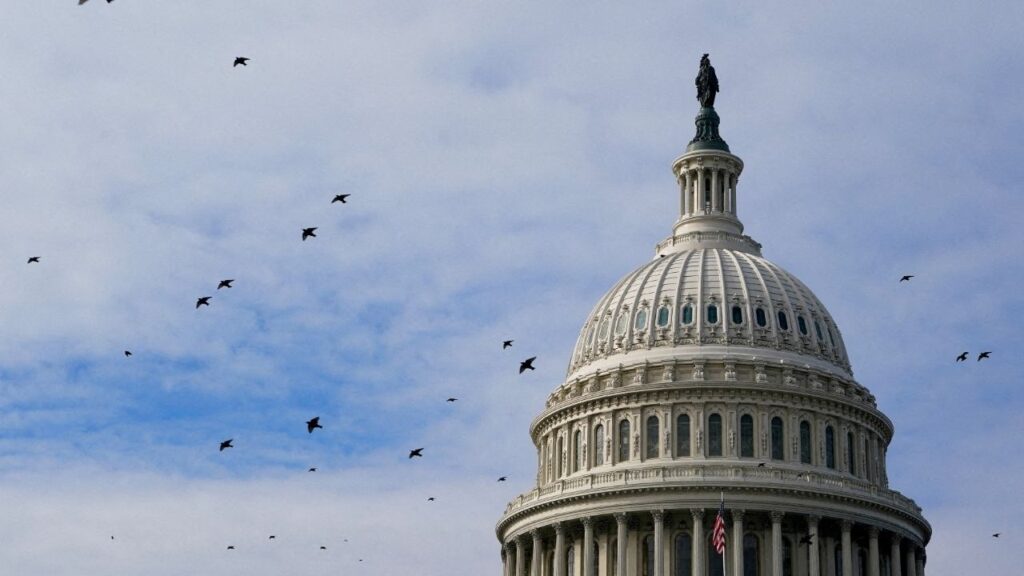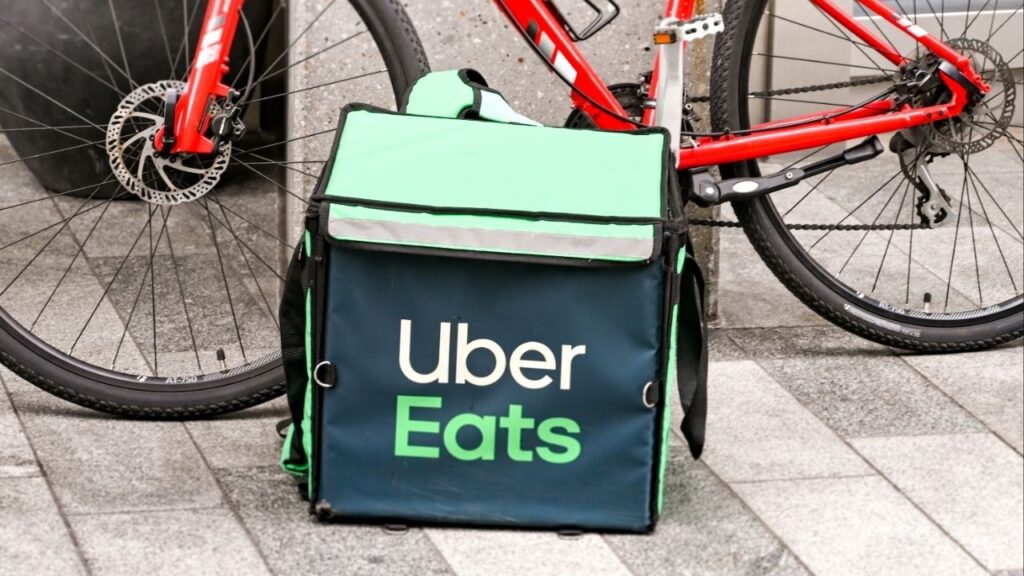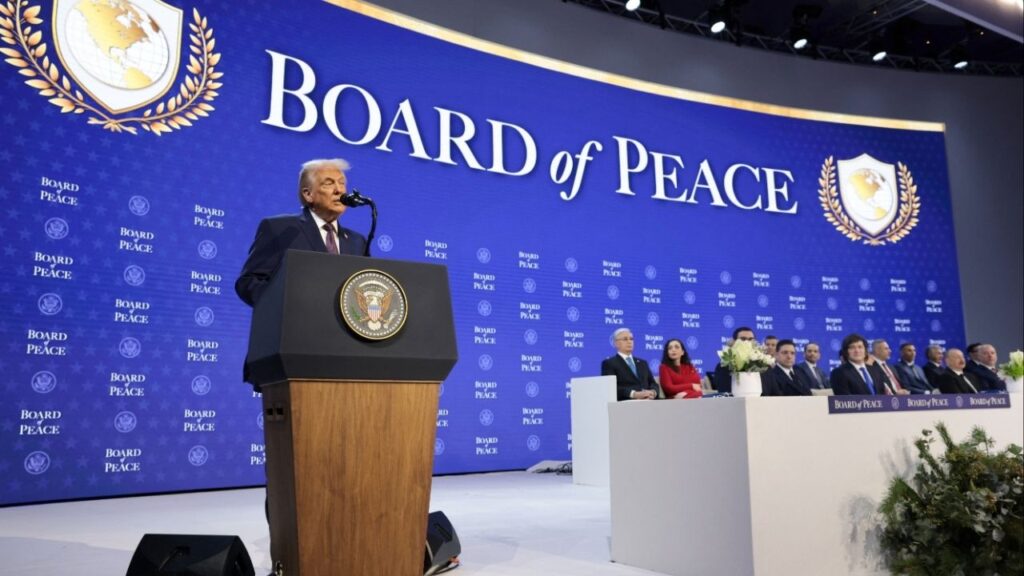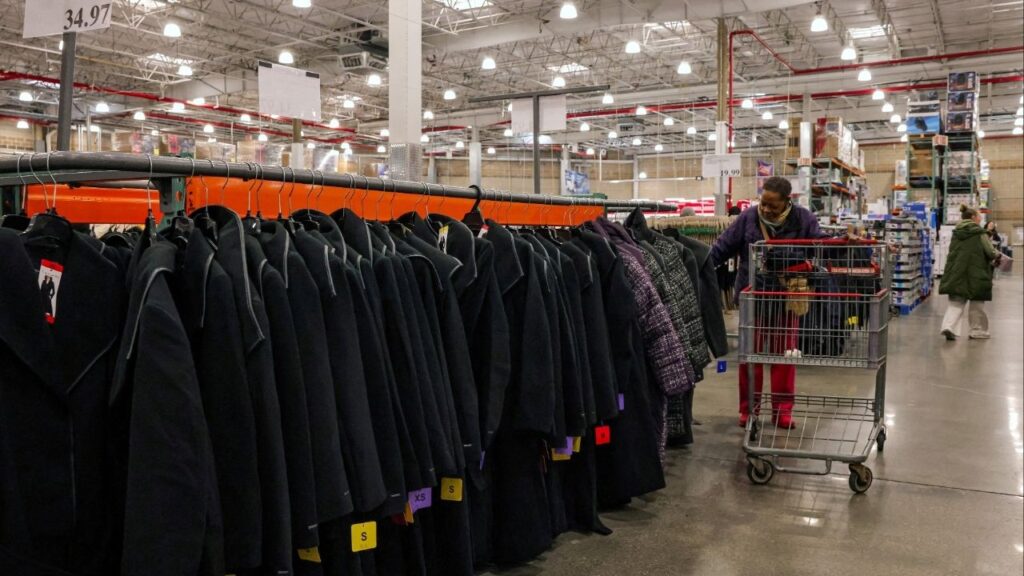Shein packages ready to be shipped from a factory in Guangzhou, China, in Feb. 12, 2025. Fast fashion retailers rely heavily on shipping by air. The president’s tariffs could change that. (Gilles Sabrié/The New York Times)

- Trump ends tariff loophole aiding Shein, Temu; move may reduce fashion airfreight emissions and disrupt fast-shipping e-commerce models.
- De minimis closure targets Chinese imports; over 1 billion airfreight packages annually contributed to rising emissions and retail price wars.
- Tariff change could shift e-commerce from fast airfreight to slower ocean shipping, cutting emissions and pressuring ultra-low-cost fashion giants.
Share
|
Getting your Trinity Audio player ready...
|
Fast-fashion giants like Shein and Temu have been doing booming business in the United States in recent years, in part because of a tariff exemption that’s helped to keep prices low on packages shipped from China.
Now, President Donald Trump has ordered the loophole closed as part of new tariffs, starting with packages from China and Hong Kong. It could have the effect, probably unintended, of putting a dent in global airfreight emissions linked to the fashion industry.
Last year, 1.36 billion packages entered the United States through that loophole, which is known as the de minimis exemption and allows goods worth less than $800 to enter the country without tariffs. The largest source of shipments under the exemption was China, and most of those packages crossed the ocean by plane, according to data from Customs and Border Protection.
And that means a lot of planet-warming emissions: Flying a package across the sea is 68 times more carbon-intensive than shipping it by ocean freight, according to the Climate Action Accelerator, a nonprofit group based in Switzerland.
A $23 Billion Business
Many countries allow shipments below a certain value to cross their borders untaxed. In Europe, the threshold is 150 euros ($170). In Argentina, it’s $400. Since 2016, when Congress last increased the de minimis exemption in a bipartisan vote, the U.S. has drawn the line at $800.
These policies help simplify the customs process for small packages and prevent bottlenecks at the border. But the U.S. exemption has also opened the door wide for foreign e-commerce platforms to compete on price with domestic retailers like Amazon and Walmart.
That’s helped Shein to carve out a U.S. niche in low-cost apparel. The company gets another boost from “haul” videos on social media, in which buyers show off their purchases. And Temu, an e-commerce platform that encouraged customers to “shop like a billionaire” in a Super Bowl commercial last year, was the most-downloaded app in Apple’s U.S. app store in 2023 and 2024.
Annual de minimis shipments to the U.S. have increased nearly tenfold in the past decade or so, rising to 1.36 billion in 2024 from 140 million in 2013. According to estimates from China’s national customs office, small packages sent to the United States were worth about $23 billion last year.
President Joe Biden announced a crackdown on these shipments last fall, citing concerns about health and safety compliance, potential contraband like fentanyl, and intellectual property rights.
Trump also briefly ordered an end to de minimis exemptions in February, but reinstated the rule a few days later amid concerns about implementation. He announced the end of the exemption again in April as part of his broader tariff package.
The new rules will be phased in over the coming weeks, with the steepest levies to take effect June 1. The Trump administration has proposed fees of up to $200 per package or 120% of the package value, with the carrier choosing which option to apply, on shipments from Hong Kong and mainland China.
A Billion Packages, Plus Greenhouse Gases
Before the pandemic, airfreight was largely used for perishable goods, said Josh Archer, a senior global corporate campaigner at Stand.Earth, an environmental nonprofit group. That was in part because shipping by air, while more expensive, is faster than shipping by sea. But Amazon’s introduction of one-day shipping changed consumers’ expectations about how fast their packages should arrive, and other retailers ramped up their use of air cargo to compete.
Airfreight emissions grew by 25% between 2019 and 2023, according to Archer’s research.
In 2024, more than 1 billion packages entered the U.S. via airfreight under the de minimis exemption, or roughly eight per household. Last year, Cargo Facts Consulting estimated that Temu, Shein, Alibaba.com and TikTok were flying the equivalent of about 108 Boeing 777 cargo planes full of packages every day.
“It’s just been an absolute explosion in the sector that we don’t really have a solution for decarbonizing,” Archer said.
Neither Shein nor Temu responded to requests for comment.
What’s Next?
Trump’s abortive attempt to close the loophole back in February offered a glimpse of what might happen.
After he announced the end of the exemption, sales on Shein started dropping. Three days later, they were down 41% compared with the same day a week before, according to a Bloomberg Second Measure analysis of credit and debit card data. Temu saw similar, though smaller, declines in sales.
The change may shake up e-commerce even if sales don’t take a hit: Companies could shift to sending much bigger shipments to U.S. warehouses by ocean freight rather than mailing individual packages on demand. That could mean lower tariffs, with a potential side benefit of lower emissions, too.
Temu is already doing this, and has said about half the products ordered in the U.S. are delivered from domestic warehouses.
—
This article originally appeared in The New York Times.
By Claire Brown/Gilles Sabrié
c. 2025 The New York Times Company
RELATED TOPICS:
Categories

Fresno Judge Changing Robes with Appellate Court Nomination

Measles Cases in South Carolina Rise by 11 to 973

US Lawmakers Plan Iran War Powers Vote as Trump Weighs Strikes

Steam Down for Thousands, According to Downdetector















